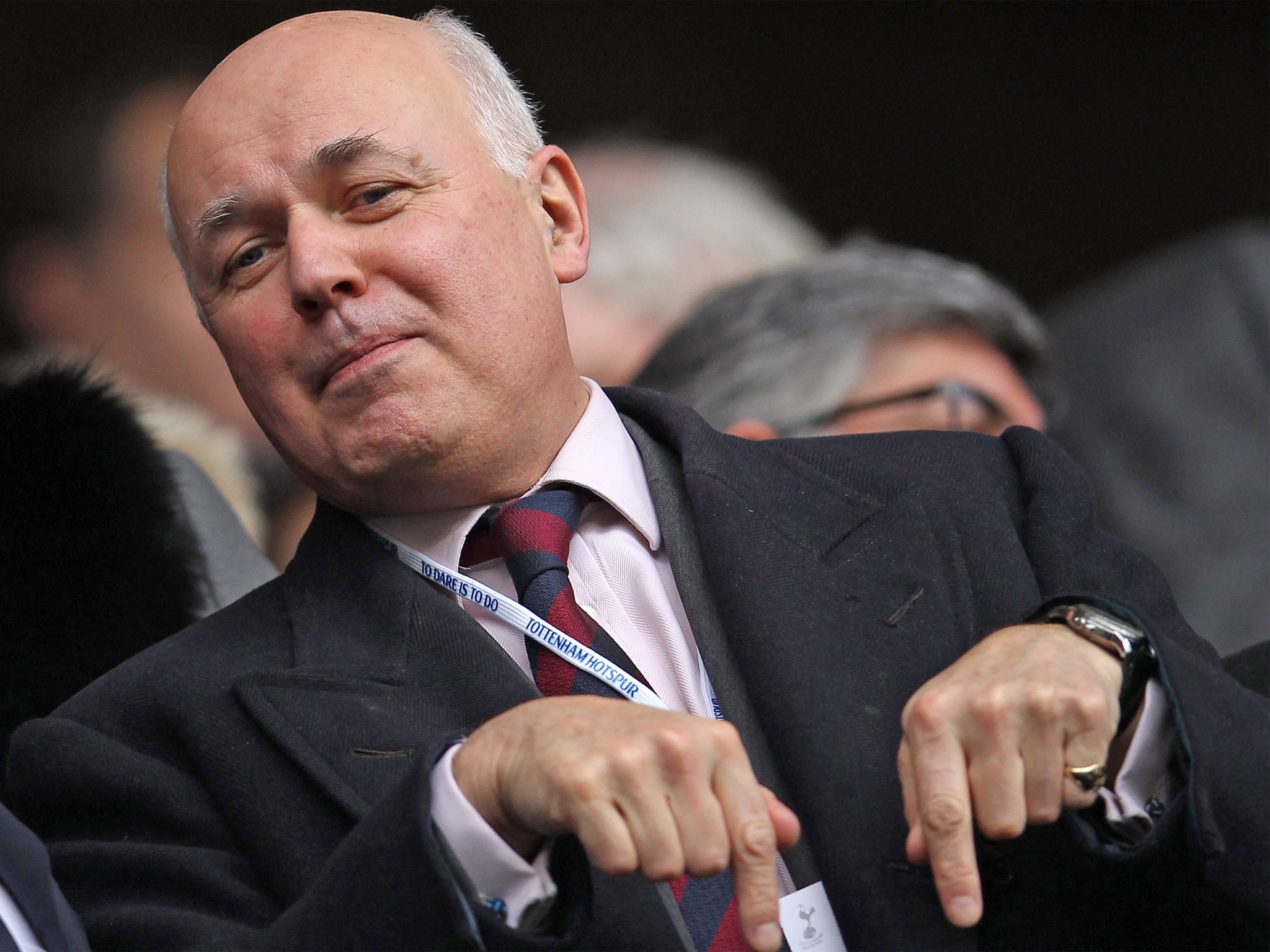If Universal Credit isn't to fail, Iain Duncan Smith must learn from the flaws of Obamacare
These are the three questions IDS should currently be asking


As Iain Duncan Smith labours to introduce a vast Universal Credit scheme that uses all the wonders of digital technology, he should look across the Atlantic and shiver. The Secretary of State for Work and Pensions will see that an even larger exercise in delivering social benefits online (in this case health insurance rather than welfare) has run into horrendous difficulties. Obamacare, which requires the building a new, online health insurance marketplace for an estimated 24 million Americans, has proved to be a disaster.
It was supposed to go live on at the beginning of last month. The programme has been plagued by glitches and is well on the way to finally destroying what remains of the Barack Obama’s credibility as a can-do president. His “Yes we can” has been replaced by “No we can’t”. One IT specialist has been quoted as saying that as many as five million lines of software code may need to be rewritten before the website runs properly. It probably won’t be ready until the New Year.
What Mr Duncan Smith is attempting to do is also very ambitious. Universal Credit is due to replace six means-tested benefits for working-age households. These cost a colossal £67bn in 2012-13. The Government is also using Universal Credit to try to encourage claimants to start work or to earn more. It wants a simpler system. And it expects Universal Credit to reduce administration costs, fraud, error and overpayments, and increase take-up.
So Mr Duncan Smith urgently needs to ask himself what he can learn from the mistakes the Washington administration has made. Here are the precise questions he should pose.
Question one: Am I paying sufficient attention to warnings of difficulties ahead?
President Obama’s team didn’t do so. In May 2010 the White House received a memo from a trusted health professional. It stated: “My general view is that the early implementation efforts are far short of what it will take to implement reform successfully… The relevant people need a vision about health system transformation and the managerial ability to carry out that vision. The President has sketched out such a vision. However, I do not believe the relevant members of the Administration understand the President’s vision or have the capability to carry it out.”
Unfortunately, Mr Duncan Smith’s team seems to be making a similar error. A recent National Audit Office assessment of progress noted: “From mid-2012, it became increasingly clear that the department was failing to address recommendations from assurance reviews. Although the nature and emphasis of its recommendations changed over time, the key areas of concern raised by the Major Projects Authority in February 2013 had appeared in previous reports.”
Question two: Have I established a clear, durable chain of command?
One of the major criticisms of the American project has been that no single person has really been in charge. There was nobody who said: “My job is the seamless implementation of the Affordable Care Act.” Alas, the introduction of the Universal Credit system seems to be facing the very same problem. The programme has had five senior responsible owners since mid-2012. And note the strange nomenclature – “Senior responsible owners”. The very phrase seems to indicate a lack of grip.
Which is presumably why the National Audit Office observed that “throughout the programme the department has lacked a detailed view of how Universal Credit is meant to work. The department was warned repeatedly about the lack of a detailed ‘blueprint’, ‘architecture’ or ‘target operating model’ for Universal Credit. Over the course of 2011 and the first half of 2012, the department made some progress but did not address these concerns as expected. By mid-2012, this meant that the department could not agree what security it needed to protect claimant transactions and was unclear about how Universal Credit would integrate with other programmes.”
Question three: Has the Department of Work and Pensions got enough money to do the job well?
In the US, one of the problems was that Mr Duncan Smith’s equivalent, Kathleen Sebelius, US Secretary of Health and Human Services since 2009, simply couldn’t scrounge together enough money to keep a group of people developing the exchanges working directly under her. This at least was the opinion of one former official quoted by The Washington Post. Yet we know that Mr Duncan Smith’s department is going through a period of great financial stringency. It is reducing running costs by £2.7bn between 2009-10 and 2014-15. And it plans to reduce costs by a further £565m in 2015-16.
The introduction of Universal Credit is already well behind schedule. It was first meant to be ready by October 2013. Then it was pushed forward to 2015. Now officials are talking of a 2017 completion date. My guess is that it will be fortunate if the scheme is fully up and running by 2020. And unless Mr Duncan Smith gets a grip, it is virtually certain that he will have left long before.
Join our commenting forum
Join thought-provoking conversations, follow other Independent readers and see their replies
Comments
Bookmark popover
Removed from bookmarks